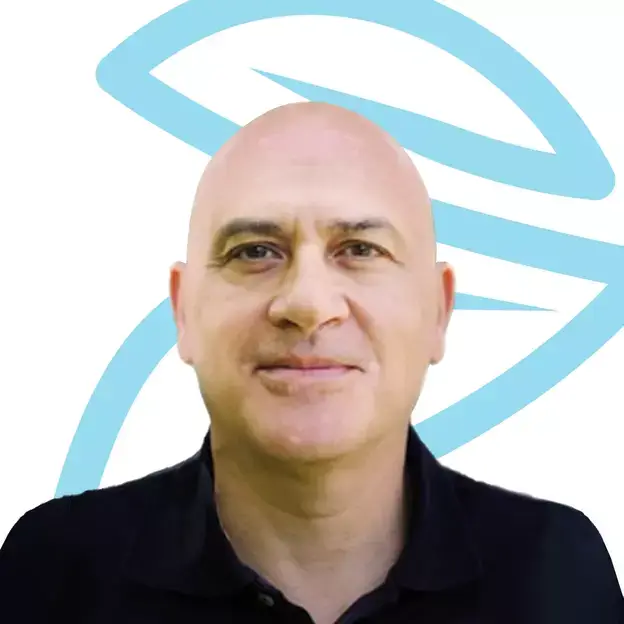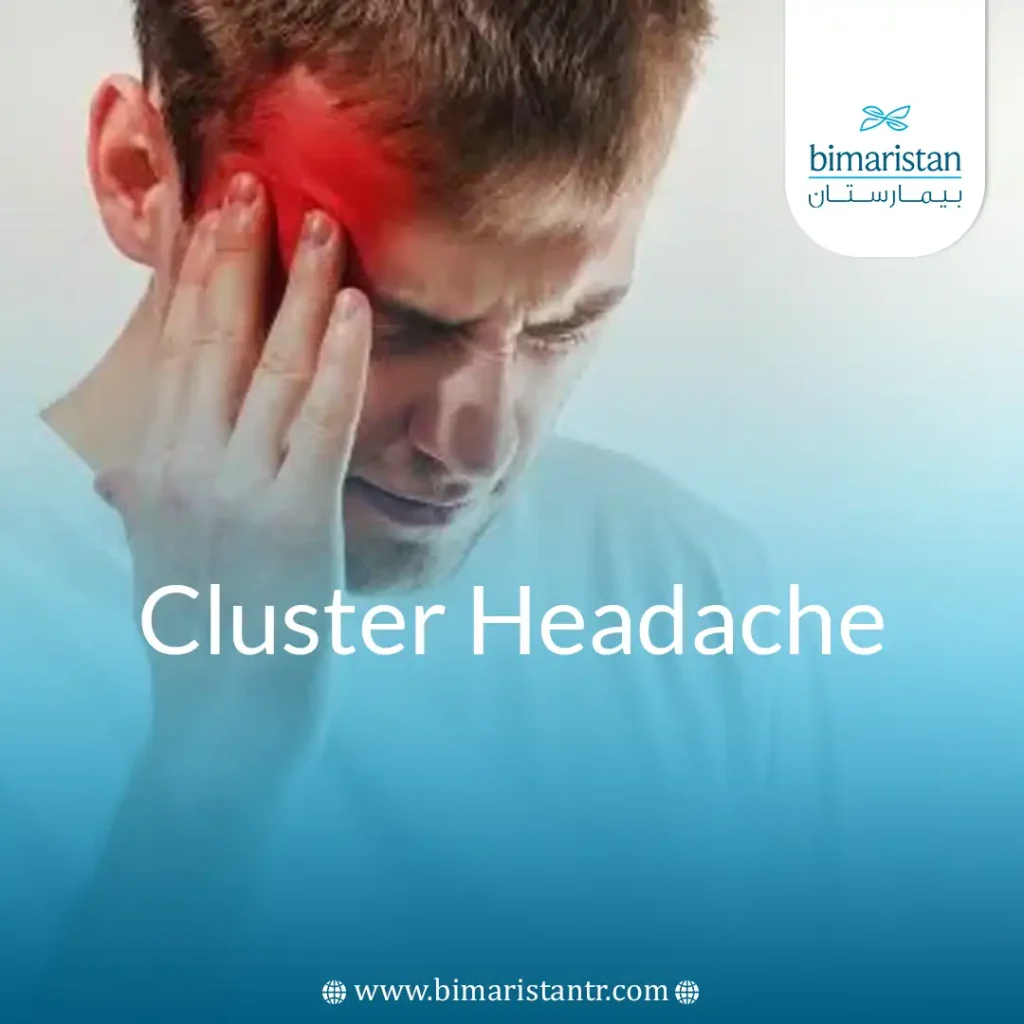Cluster headache is a severe and debilitating type of headache that mainly affects men and requires prompt treatment to provide relief.
The reason for naming Cluster Headache is due to the symptoms of the headache coming in successive bouts of pain (resembling a cluster of grapes) followed by an unpredictable period of improvement or worsening of symptoms.
Due to the nature of Cluster Headache symptoms and their impact on life, it is necessary to learn more about the ways to treat Cluster Head pain and how to deal with it through following us in this scientific article.
Cluster Headache meaning
Cluster Headache is a less common type of headache than other types of headaches, but it is characterized by severe and frequent bouts of pain on one side of the head. The symptoms of this type of headache are severe and greatly described by patients as the worst imaginable pain.
The cause of the appearance of symptoms in Cluster pain patients is unknown and has not been definitively identified yet. However, some factors are suspected to contribute to the development and exacerbation of Cluster Head pain symptoms, such as changes in hormone activity, smoking, alcohol consumption, and some medications.
Cluster Headache Symptoms
The symptoms of Cluster Headache may vary from patient to patient but include the most important symptoms that most patients suffer from:
- A severe and sudden headache that lasts from ten minutes to two hours, usually located around the eye or forehead on one side of the head, often comes at night and wakes the person from sleep.
- Horner’s syndrome symptoms on the affected side (constriction of the pupil, drooping of the upper eyelid, decreased sweating rate).
- Redness and swelling of the eye with increased tear secretion.
- Nasal congestion or blockage.
- Swelling or redness of the face.
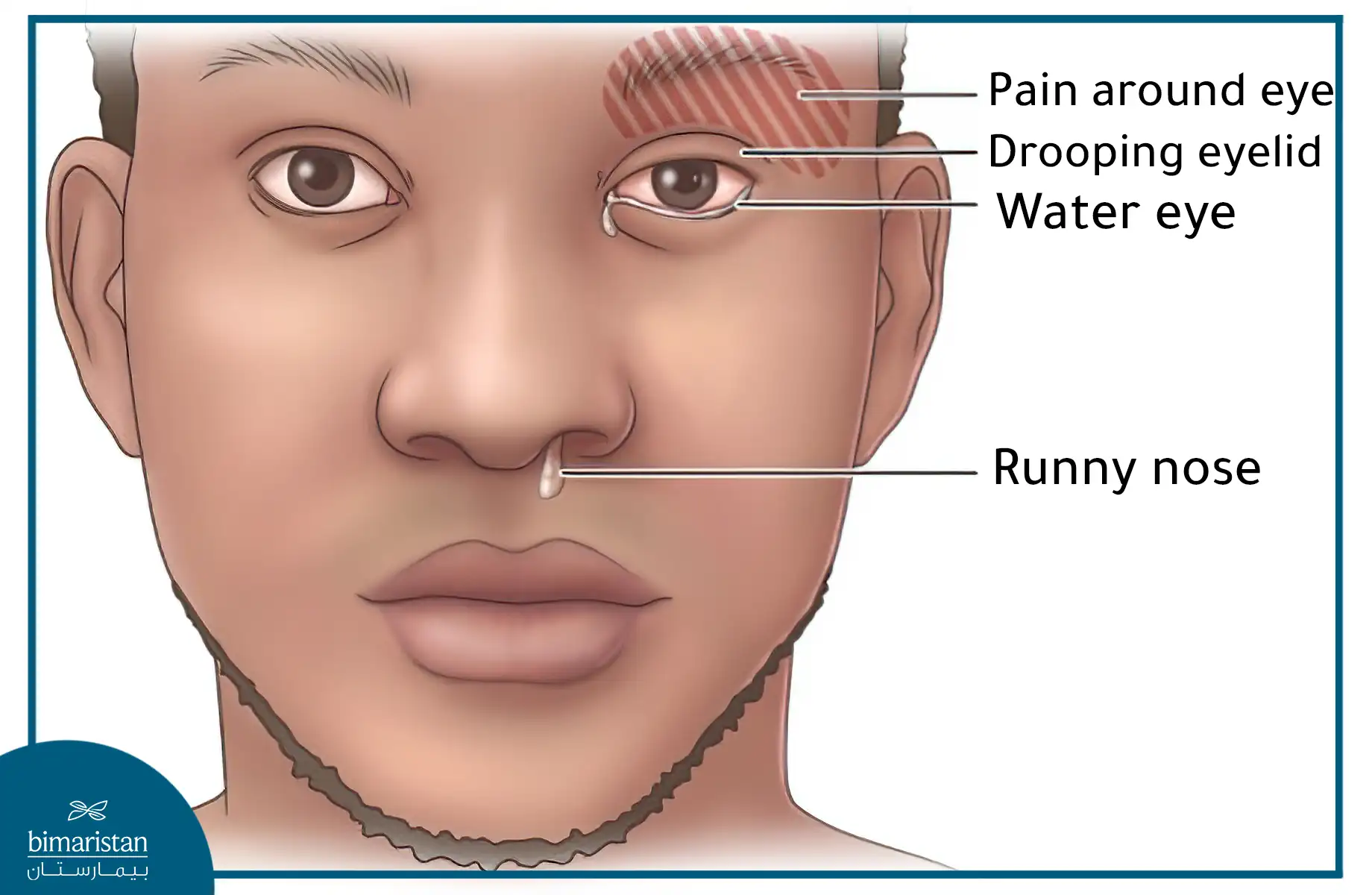
These symptoms can occur frequently for specific periods of time (weeks or months), then disappear for a period of time before returning again.
The difference between Cluster Headache and Migraine
It is important to know the difference between Migraine and Cluster Headache as they are two different types of headaches with some main differences in terms of:
| Cluster Headache | Migraine | |
| Location | Around or behind the eye on one side of the head | In the forehead and around the eye on one side of the head, but can involve both sides |
| Severity | Sudden and described by patients as the worst pain they have ever experienced | Gradual and throbbing, increasing in intensity |
| Frequency | Short and frequent bouts lasting for a few weeks to a few months | Intermittent over longer periods of time |
| Associated symptoms | Redness of the eye, nasal congestion, facial swelling, or redness | Sensitivity to light, noise, or certain smells, nausea or vomiting |
| Causes | The exact causes of cluster headaches have not been determined accurately. However, factors that cause migraines may lead to cluster head pain to a lesser extent. | Stress, changes in sleep patterns, and consuming certain foods such as cheese containing tyramine and chocolate containing phenylethylamine can trigger migraine. |
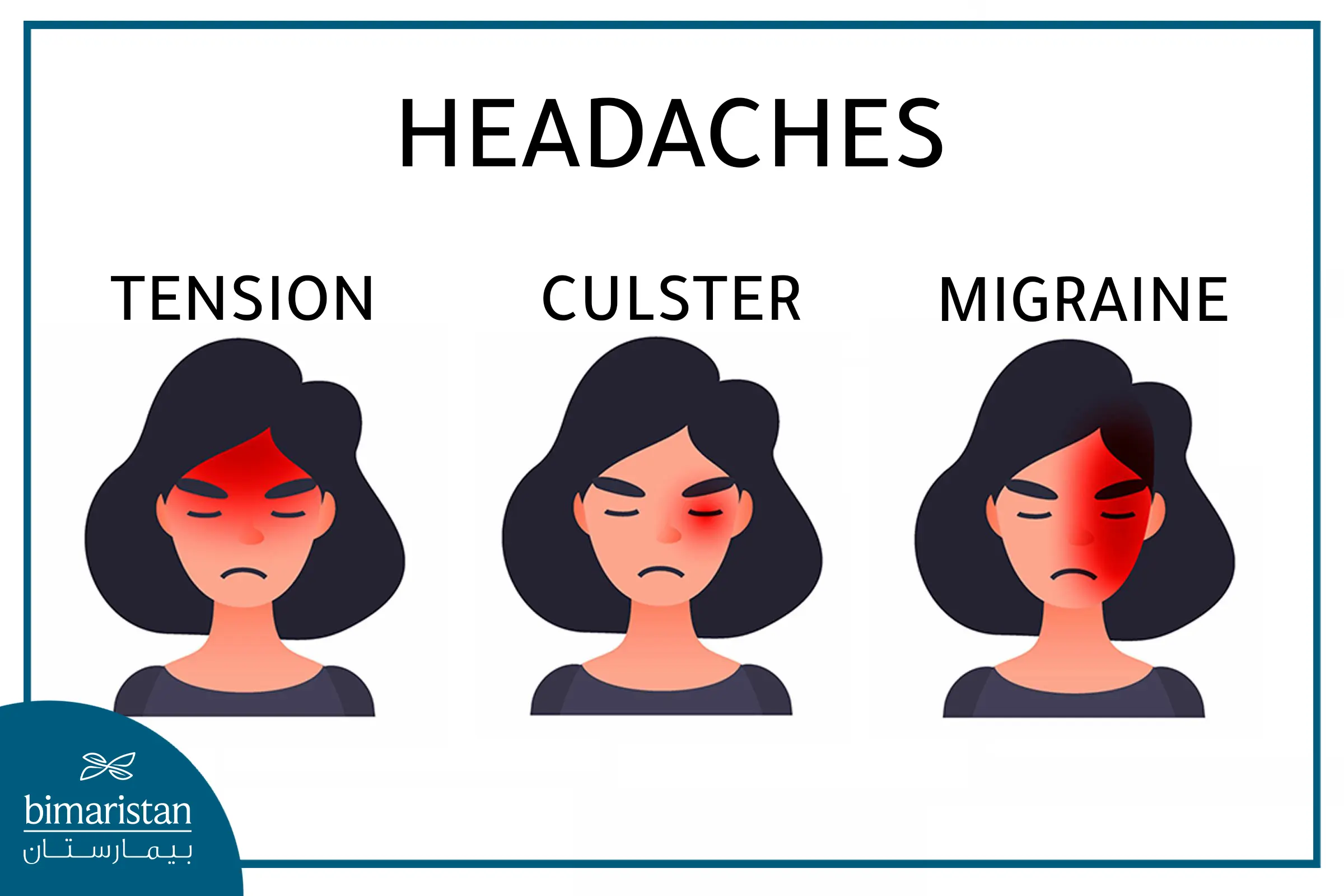
Cluster Headaches Causes
The exact cause of cluster eye headache is still not fully understood, but there are some potential hypotheses to explain the headache, including:
- Histamine Hypothesis: It was previously believed that the cause of the headache was high levels of histamine. Hence, it was also called histamine headache.
- Trigeminal nerve cluster headache Hypothesis: It is also believed that the trigeminal nerve (fifth nerve) plays a role, along with the presence of multiple chemical secretions such as substance P.
- Autonomic Hypothesis: This is a recent hypothesis based on the activation of the autonomic nervous system to accompany the symptoms of cluster head pain with autonomic symptoms in the affected eye, such as pupil constriction and tearing (increased tear production).
However, individuals suffering from cluster head pain should consult a doctor to accurately diagnose the condition and determine the appropriate treatment for them.
Cluster Headache Triggers
There are several factors suspected to contribute to the occurrence of cluster headache attacks, including:
- Smoking and alcohol
- Bright lights and staring at screens (TV and computer)
- Vasodilators such as nitrate-containing medications
- Oral contraceptives
- Loud noises (noise)
- Poor sleep
- Emotional stress
- Menstrual cycle in women
Cluster Headache Diagnosis
Cluster headaches are diagnosed based on the patient’s symptoms and medical history. There are international criteria for diagnosis and a cluster head pain is diagnosed when the following criteria are met:
- Presence of at least 5 attacks that meet the characteristics of cluster head pain.
- Severe or very severe unilateral headache, located around the temple or above the temple, or a frontal headache, with each headache attack lasting 15-180 minutes (if untreated).
- The headache is accompanied by at least one of the following symptoms:
-
- Ipsilateral, conjunctival injection and/or lacrimation
- Ipsilateral nasal congestion and/or rhinorrhea
- Ipsilateral forehead and facial sweating
- Ipsilateral miosis and/or ptosis
- A sense of restlessness or agitation
- Unilateral eyelid edema
- The frequency of headache attacks ranges from one every other day to eight per day.
- The above symptoms must not be attributed to another disorder.
Cluster Headache Treatment in Turkey
Unfortunately, there is currently no definitive treatment for cluster headache pain. However, there are some approaches that can be taken to alleviate the symptoms of cluster headaches and control them, such as avoiding triggers for cluster head pain. There are also medicinal and surgical methods that can help eliminate cluster headaches:
Medications for cluster headaches
Medications are one of the most important and widely used methods for treating cluster headaches at home, and they vary in their effects from patient to patient. Meds for cluster headache treatment at home can be divided into two main groups:
Medications for Acute cluster headache treatment
These medications help alleviate the severe and distressing symptoms of cluster head pain, including:
- Triptans: Triptans are among the most important medications used to treat cluster head pain in patients during acute attacks due to their ability to relieve pain. Examples of these medications include Sumatriptan (injection or nasal spray) and Zolmitriptan.
- Dihydroergotamine (DHE 45): This compound can be used to treat cluster head pain due to its ability to constrict blood vessels in the head and alleviate symptoms. Another compound, Ergotamine, is not used in treatment due to its weak effectiveness compared to Dihydroergotamine.
- Octreotide: This synthetic compound derived from growth hormone (somatostatin) can be administered intravenously.
- Lidocaine: This pain reliever can be used through nasal inhalation.
- Oxygen: Oxygen therapy at high pressure (100%) for 20 minutes can be used in treatment.
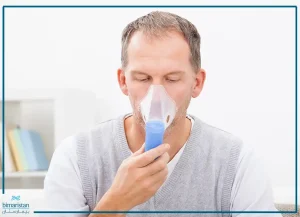
It should be noted that there is no benefit in using Paracetamol and Ibuprofen in cluster headache relief during or outside of an attack.
cluster headache prevention by medications
The benefit of preventive medications for Cluster Headaches, taken outside of cluster attacks, is to reduce the attack’s duration and relieve the headache’s pain if an attack occurs. Some of the medications used include:
- Verapamil: A calcium channel blocker that works to dilate blood vessels.
- Corticosteroids: Treatment of Cluster Head pain with cortisone reduces inflammation and swelling in the head. Prednisone is the most important drug in this group that can be used in treatment.
- Lithium carbonate: Used in treatment due to its ability to rebalance chemicals in the brain.
- Sodium valproate.
- Topiramate.
- Galcanezumab.
Cluster Headache therapy and Nerves
Studies have shown that most patients who suffer from Cluster Head pain experience pain from the base of the skull, especially from the occipital nerve. Therefore, some doctors recommend injecting a mixture of anesthetic and steroids into these nerves (this method is called nerve block). Still, this method is temporary until preventive medications for Cluster Head pain are started.
If the previous method fails, the doctor may implant a device that sends electrical pulses to the occipital nerve in the base of the skull. Electrodes can also be placed on the forehead and connected to a device that resembles a headband that sends electrical signals to the nerve above the jugular (there is a similar tool that sends electrical signals to the vagus nerve called Gammacore). This method can be considered the latest treatment for chronic Cluster Headache.
Treatment of Cluster Headache with Surgery
Surgery can be used to treat Cluster Headaches if the patient does not benefit from any other treatment options. Most procedures involve blocking the trigeminal nerve, which is the main path of pain and controls the area surrounding the eye. Therefore, any wrong step can lead to weakness in the lower jaw and loss of sensation in the face and head.
Bimaristan Medical Center remains your first destination for treatment in Turkey, so do not hesitate to contact us if you want comprehensive and integrated treatment for various diseases. We work to provide the latest medical equipment in the world and deal with the most experienced doctors in all medical specialties.
In conclusion, patients should remain positive and take care of their overall health. Although the symptoms of Cluster Headache may be painful and annoying, it is possible to live with this condition and maintain a good quality of life by using the appropriate medication and changing lifestyle habits.
Frequently Asked Questions About Cluster Headache
What is Cluster Headache?
Cluster head pain is a chronic headache characterized by acute cluster head pain on one side of the head, often affecting males around 30.
Is Cluster Headache Serious?
Cluster head pain is not considered life-threatening; however, it can cause intense and severe pain in one area of the head, typically around the eye, and occurs for short and recurrent periods.
What Causes Cluster Headache Disease?
There is no clear cause for cluster head pain yet, but smoking, alcohol consumption, inadequate sleep, and other factors are suspected to play a role in the occurrence of cluster head pain.
What Are the Causes of Cluster Headache in Women?
Numerous factors are suspected to be related to the occurrence of cluster head pain. Still, emotional stress and the menstrual cycle are among the most common causes in women, and there is a relationship between cluster headaches and pregnancy.
What is the Relationship between Cluster Headache and Eye Pain?
Cluster head pain typically causes intense and severe in a specific head area, usually around the eye. The individual may experience severe cluster headaches behind the eye and may notice redness or swelling in or around the eye. Additionally, vision may be affected, becoming blurry or unclear.
What is the Treatment for Cluster Headache in Turkey?
The treatment of cluster head pain is primarily through medications, including those that treat symptoms like triptan compounds and those used as preventive measures to avoid symptom recurrence, such as steroid compounds.
Sources:
